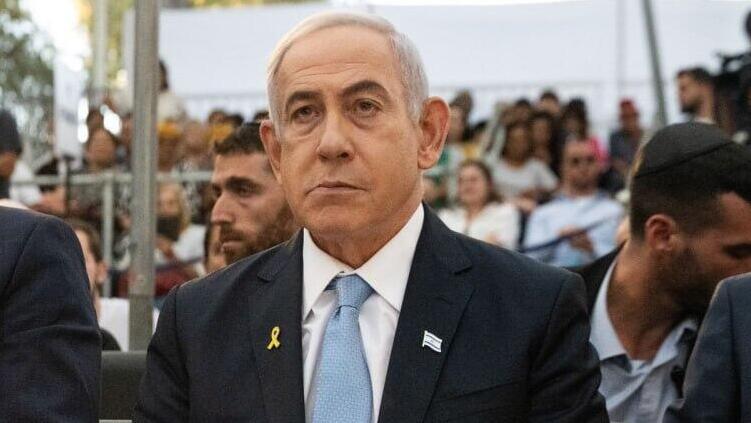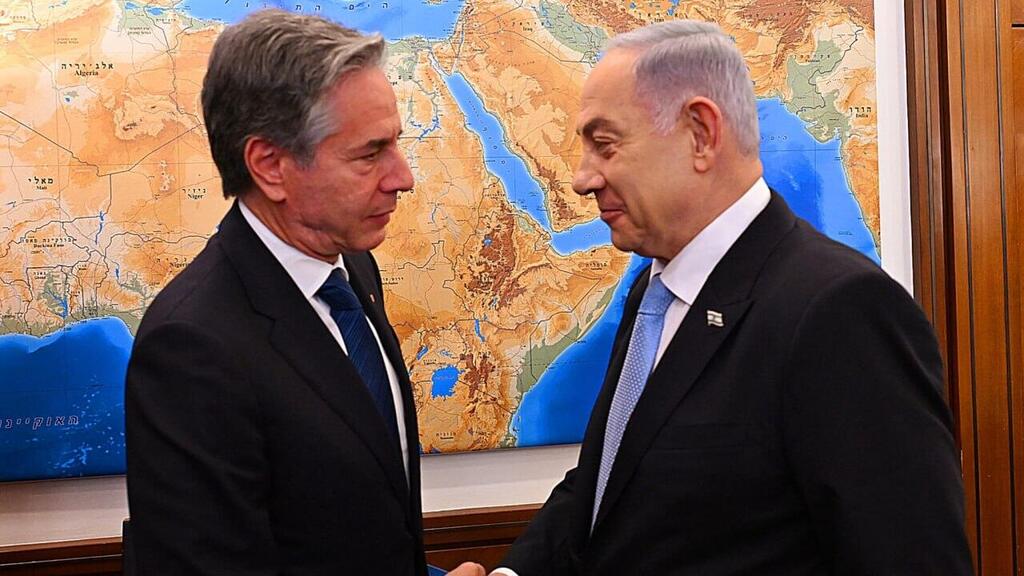U.S. Secretary of State Antony Blinken arrived in Cairo on Tuesday and will continue to Doha, where he will attempt to persuade intermediaries to exert further pressure on Hamas to continue talks for a hostage release and cease-fire deal following Prime Minister Benjamin Netanyahu's acceptance of the American bridging proposal.
Netanyahu met with bereaved and hostages’ families on Tuesday, and reportedly told them that "a deal isn’t certain."
The Americans are expected to hold a summit to further negotiations on Friday and possibly as early as Thursday, but it remains unclear whether Hamas will agree to attend. Estimations say Hamas might wait for an escalation and Hezbollah’s retaliatory attack on Israel.
Blinken employed an interesting tactic – embracing Netanyahu and saying he accepted the American mediation proposal, despite existing gaps, including issues related to Netzarim and the Philadelphi Corridor.
This move effectively moves the ball into Hamas’ court. Some in Israel were surprised by this embrace and Blinken's statement, believing the Americans were trying to set a honey trap for Netanyahu. This is essentially their way of telling him, "Try and say no or derail this now," say some observers.
Hamas sharply criticized Blinken and U.S. President Joe Biden following his words. "We followed Biden's statements with great astonishment and deep disagreement, where he claimed that the organization backed out of a cease-fire agreement," Hamas said in an official statement.
"We affirm that Biden and Blinken's words are misleading accusations that don’t reflect our true position, which seeks to achieve a stop to the war,” the statement added.
Hamas also added: "Biden and Blinken's statements are part of the American bias in favor of the Zionist occupation and participation in the aggression and war of annihilation. We see these statements as an American green light for the extremist Zionist government to commit more crimes against civilians. What was recently presented to us is a reversal of what the parties agreed to on July 2, which was based on Biden's own statement."
The Heroism Forum, which brings together families of soldiers killed during the Gaza war, met with Netanyahu on Tuesday. "We understood from what the prime minister said that a cease-fire, should it take place, would be limited," forum representatives said after the meeting.
"He won’t give up on the Philadelphi Corridor; there was no talk of reducing forces from the Gaza Strip. According to the prime minister, Israel stands firm on all its demands, and the prime minister isn’t yielding to any pressure from the U.S.,” the Forum added.
The American bridging proposal details the outline for the release of hostages, prioritizing the release of women and female IDF soldiers during the initial phases. The plan will focus on freeing live hostages as a priority. Israel is insisting on increasing the number of live hostages to be released in the deal, and the Americans have addressed this in their proposal.
The proposal also details the list of Palestinian prisoners to be released from Israeli prisons, including 47 prisoners who were previously released in the Gilad Shalit deal but were later re-incarcerated. Israel will have veto power over the identity of 65 out of the 150 prisoners serving life sentences.
The deal also specifies a change in the IDF's deployment in Gaza during the six-week cease-fire. Furthermore, the proposal outlines the start of negotiations for the deal’s second phase, a point of contention between Israel and Hamas.
The main disagreement now centers on the Philadelphi Corridor. The proposal calls for a reduction in IDF forces in the area but doesn’t mandate a complete withdrawal.





